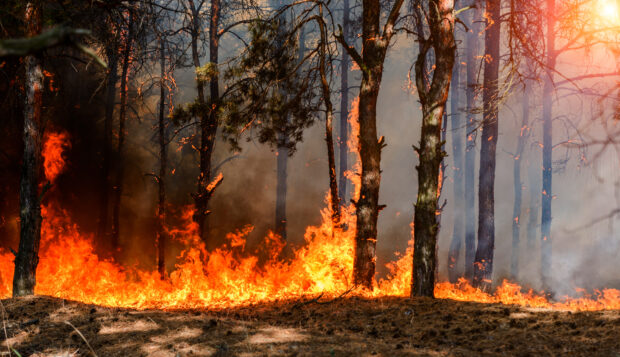A group of 14 attorneys general has formed a coalition to persuade the Federal Emergency Management Agency (FEMA) to initiate rulemaking to update its regulations to recognize extreme heat and wildfire smoke events as eligible for major disaster declarations under the Stafford Act.
An excerpt of the letter reads:
“The Act’s definition of ‘major disaster’ — ‘any natural catastrophe’— plainly encompasses extreme heat and wildfire smoke events. FEMA’s regulatory definition of ‘major disaster’ essentially mirrors the Act’s language. Extreme heat and wildfire smoke are in all respects as ‘natural’ as hurricanes, and their impacts are likewise catastrophic for communities across the United States. Moreover, ‘the losses caused by extreme heat events, aside from a portion of those related to health, are generally not covered by insurance and most are borne by individuals and public entities.'”
Arizona’s Kris Mayes and California’s Rob Bonta led the coalition.
The petition also seeks to clarify that wildfire smoke events are eligible for Fire Management Assistance Grant (FMAG) funding.
In a letter addressed to FEMA Administrator Deanne Criswell and Chief Counsel Adrian Sevier, the coalition highlighted the increasing frequency and severity of extreme heat and wildfire smoke events.
Past events show the significant public health risks and financial burdens on local communities, the letter explained, which may require federal assistance to effectively respond to the disasters.
“Extreme heat and wildfire smoke events are devastating because of their severe impact on public health and the environment, yet they are not currently recognized as major disasters by FEMA,” said Attorney General Mayes. “Updating FEMA’s regulations to include these events will provide much-needed resources and help us better protect our residents.”
The letter detailed the significant impacts of recent extreme heat and wildfire smoke events, citing examples such as the 2021 Pacific Northwest Heat Dome, which resulted in hundreds of deaths and widespread power outages, and the Canadian wildfires that blanketed parts of the Midwest and East Coast in smoke.
The coalition underscored the importance of proactive measures and federal support in mitigating the effects of these disasters.
“In 2022, Arizona recorded 1,030 deaths related to or caused by heat statewide, as well as over 4,000 hospital or emergency room visits for heat-related illness,” added Attorney General Mayes. “These preventable deaths are occurring both inside and outside, highlighting the need for things such as additional LIHEAP funding for low-income customers to receive assistance with their utility bills, more data-driven, 24-hour cooling centers, and better worker protections for extreme heat and wildfire smoke. Arizona is also in a long-term drought, which increases wildfire hazards exponentially.”
There is an urgent need for FEMA to amend its definition of “major disaster” to explicitly include extreme heat and wildfire smoke events, the letter added.
It also emphasizes the critical role of Fire Management Assistance Grant funding in addressing the health impacts of wildfire smoke, such as providing HEPA air filtration devices and other necessary supplies to vulnerable populations.
Attorney General Mayes and Bonta were joined by the attorneys general of Colorado, Connecticut, the District of Columbia, Illinois, Massachusetts, Maryland, Michigan, New Jersey, New Mexico, New York, Oregon and Vermont.





















 Nearly 26.2M Workers Are Expected to Miss Work on Super Bowl Monday
Nearly 26.2M Workers Are Expected to Miss Work on Super Bowl Monday  Chubb CEO Greenberg on Personal Insurance Affordability and Data Centers
Chubb CEO Greenberg on Personal Insurance Affordability and Data Centers  Beazley Agrees to Zurich’s Sweetened £8 Billion Takeover Bid
Beazley Agrees to Zurich’s Sweetened £8 Billion Takeover Bid  Modern Underwriting Technology: Decisive Steps to Successful Implementation
Modern Underwriting Technology: Decisive Steps to Successful Implementation 




